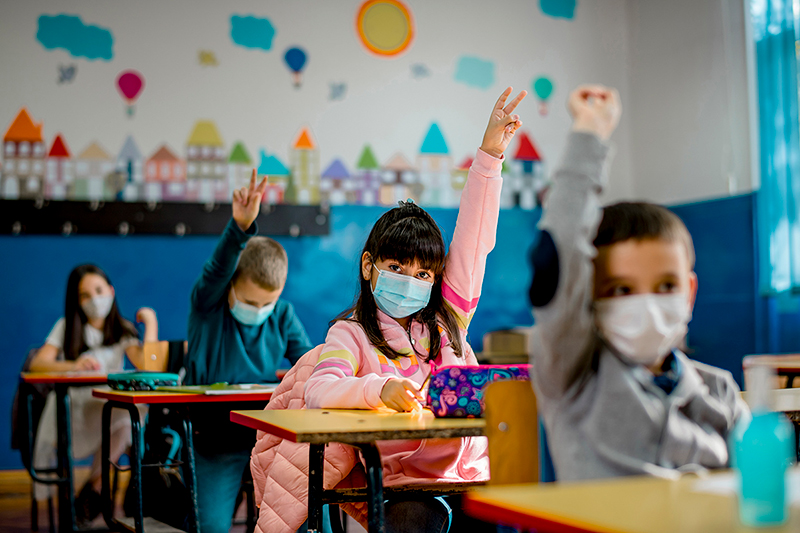
As schools across the United States begin to resume full-time, in-person education, I am hopeful that this academic year may be a more typical one. The in-person school environment and the wide range of services offered there are critical for the development and well-being of our nation’s young people. Without in-person schooling, many children miss out on school-based meals, speech or occupational therapy, and after-school programs. Loss of such services disproportionately affects minorities, socially and economically disadvantaged children, children with disabilities, and those with medical complexities.
Generating robust scientific data to inform policies to return children to the classroom safely and equitably during the ongoing COVID-19 pandemic is of paramount importance not only for children, but also to allow their parents to return to work. We now have safe and effective vaccines available for adults and children ages 12 years and older, as well as established public health measures to prevent transmission of SARS-CoV-2, the virus that causes COVID-19. Yet the emergence of the more transmissible delta SARS-CoV-2 variant and the rising COVID-19 cases across the country remind us that we must remain vigilant and adaptable to changing circumstances.
NICHD manages the Safe Return to School Diagnostic Testing Initiative, launched earlier this year as part of the NIH Rapid Acceleration of Diagnostics-Underserved Populations (RADxSM-UP) program. This initiative addresses the needs of children with unequal access to COVID-19 testing and who face barriers to attending school remotely, including those who do not have adequate equipment, internet access, or adult supervision at home.
The RADx-UP Return to School projects combine frequent COVID-19 testing with proven safety measures to reduce the spread of SARS-CoV-2. They also are exploring the influence of vaccination for eligible staff and students, addressing vaccine hesitancy, and seeking information on circulating SARS-CoV-2 variants and breakthrough infections. Funding for the first set of projects was announced in April, and additional projects were funded in July. Currently, 16 projects are ongoing at schools across the country, including public, charter, tribal, early education, and special education schools. Participating schools serve racially and ethnically diverse populations, including African Americans, American Indians/Alaska Natives, Latinos/Latinas, Asian Americans, and Native Hawaiians and other Pacific Islanders. Critically, several projects include children with medical complexities and/or intellectual and developmental disabilities who may not be able to use COVID-19 mitigation measures such as wearing masks or social distancing.
On August 9, NIH hosted a virtual workshop that brought together RADx-UP Return to School investigators and other researchers conducting school-based research on COVID-19 diagnostic testing to present data acquired to date, learn from each other, and support the safe return of children to in-person school.
Among other topics, workshop participants discussed the critical importance of engaging local communities in this research. Communities need access to the most up-to-date scientific evidence to weigh the benefits and challenges of implementing different COVID-19 mitigation strategies. Scientists need community input to understand the attitudes, knowledge, and barriers that may influence individual choices to enroll in COVID-19 testing programs and return to in-person learning. By working together, we can ensure a safe return to school for all.
 BACK TO TOP
BACK TO TOP